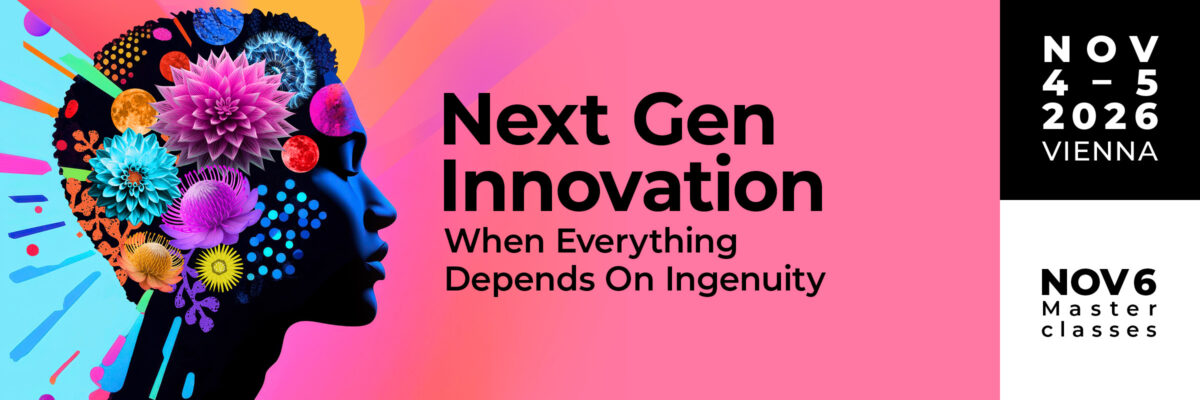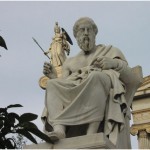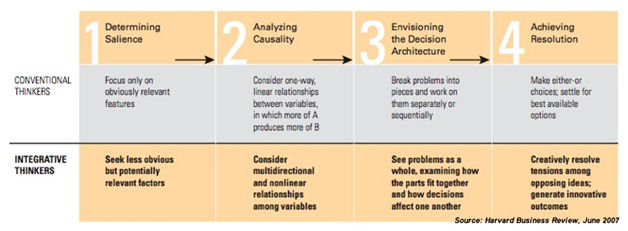Over two and a half millennia ago, Greek philosophers gave us the “dialectical” method of constructive argument. In the 21st century democracy is faced with significant challenges, and moving forward may require searching for solutions from the wisdom of democracy’s inventors.
The dialectic method is a form of reasoning based on dialogue of arguments and counter-arguments, advocating propositions (theses) and counter-propositions (anti-theses). The dialectical method of dialogue is unique and different from rhetoric and debate in that it aims to converge the opposite points of view and form a new and superior point of view from the synthesis of the initial arguments. This transcendence is possible by searching for commonalities between the two opposing points of view when considered in the larger context or whole of which they are both part. Ancient history not applicable to the problems of today’s highly technologized and interconnected world, right? Not necessarily.
Fast forward to the 21st century: Roger Martin, #6 on the top fifty management thinkers of 2011 (http://www.thinkers50.com/biographies/95) and a guest speaker at the 2012 Global Drucker Forum is the creative force behind two of the most valued management models: Integrative Thinking and Design Thinking.
Roger Martin defines Integrative Thinking as: “the ability to constructively face the tensions of opposing models, and instead of choosing one at the expense of the other, generating a creative solution of the tensions in the form of a new model that contains elements of the individual models, but is superiors to each” (http://rogerlmartin.com/devotions/integrative-thinking/). Sound familiar? Roger Martin’s concept was actually developed by interviewing some of the world’s top business leaders and entrepreneurs. Apparently these “integrative thinkers” go about solving problems differently than “conventional thinkers”; and step 4 of the figure below has an uncanny resemblance to the dialectical method.
And so, without the benefit of modern technology or access to a study group, Socrates said pretty much the same thing more than 2500 years ago. And as we look to the challenges faced by democracy in the 21st century, we may have to take Socrates and his fellow Greek philosophers seriously.
But what is the main challenge of our century’s advanced democracies? A lot of the challenges can actually be related to one dominant culprit: complexity. Small start-ups are good sources for inspiration when it comes to agility, but past a critical mass agility gives way to complexity as a bureaucracy grows in size. And advanced democracies are experiencing the “complexity” by-product of progress to a growing degree (see the 2008 financial crisis and other systemic events). And so, in the current construct of democratic progress, agility and complexity seem to be mutually exclusive; so much so that the left and right political ideologies of the leading modern democracy, the USA, can be said to be increasingly aligned to the agility thesis and complexity antithesis. On one hand, the left ideology is advocating for a top-down, bureaucratic approach to tackling complexity. The right by contrast is advocating for an agile bottom-up, government-free approach to tackling complexity. In true agreement with the dialectical method, the future of democracy may well need a transcendence of those two viewpoints into a synthesis that would bring together bureaucracy and agility: an innovative, agile, next generational government together with a private sector responsible to all its stakeholders, not just its shareholders.
But the transcendence of the current left and right political ideologies which could be the answer to the complexity dilemma also has to happen at the level of the individual human being. And there are more subtle ideological differences between the left and right political parties at that “micro” level. There are so to speak, emotional and behavioral differences in how the individual is perceived. The left ideology emphasizes a compassionate view of the individual, and sharing opportunity with the less fortunate, those that are somehow left outside the system with all its benefits. At the same time, the right ideology emphasizes the competitive human side that is by definition individualistic and not necessarily in alignment with compassion. Are these ideologies, apparently opposed, actually facets of the same human construct when regarded from a more holistic perspective? Are human beings both compassionate and competitive? For a successful society that both makes progress and takes care of its less fortunate, are these attributes not required simultaneously? And if so, is there a model that could reconcile these so that democracy itself has a future? Is the distant future of democracy predicated upon the disappearance of the left and right ideologies?
Roger Martin’s second area of interest, Design Thinking, may provide the solution to an ideology-free democratic construct. Design Thinking, closely related to Integrative Thinking, can be described as a style of thinking that is generally associated with the ability to combine empathy for the context of a problem, creativity in the generation of insights and solutions, and rationality to analyze and fit solutions to the context. A Design Thinking approach to political ideology could bring the two dominant ideologies closer together, by demonstrating a shared concern for the individual’s well being, both in terms of the basic need for individualism (competitiveness) and inclusiveness (compassion). Creativity, the key ingredient of Design Thinking, represents that uniquely human trait which could lead the way to a future world where competitiveness and compassion are symbiotic and simultaneously harmonious: that is, there is no need to alternate between the two every four years.
Author:
Liviu Nedelescu is a management consultant and business thought leader with an astute globalization understanding framed by two opposable extremes: high complexity transformation in advanced economies and agile start-up entrepreneurship in emerging markets. Mr. Nedelescu is also a keen observer of the enduring human predicament defined by the perpetual tension between creativity and fear of change.
Combining formal rigor at the intersection of system technologies, design principles and complexity thinking with large scale transformation expertise and entrepreneurial practice, Mr. Nedelescu is currently developing a management science ontology suited for 21st century systemic challenges. Mr. Nedelescu is also currently lending his subject matter expertise to the transformation of the air transportation system alongside industry principals. Most recently, Mr. Nedelescu has become involved with executive business education and advising higher learning institutions on innovation and differentiation strategies. Other career highlights include several patents and peer reviewed publications, two start-ups, disruptive management consulting theoretical models and methods, operational and commercial strategies in advanced and emerging economies, innovation and change initiatives leadership.




The big difference between the cosmology of ancient Greece and ours today is that theirs was static and ours is dynamic and evolutionary/developmental. Plato and Aristotle did not believe that one could obtain the pure knowledge of reason about things that were in a constant state of change. About them all one could get was delusive opinion. This is understandable. If something is solid and stable, one can take it apart, analyze its parts, and put them back together again. It is no coincidence that the words “substance” and “understand” share the same roots. Things that move – processes – do not allow us to perform these functions and even our language reflects our annoyance at this fact: we call them “insubstantial”, “erratic” and “infirm”. This view of the universe as a machine did not change with the Enlightenment. Descartes elevate geometrical knowledge over all others. He believed history to be shallow, and likened it to foreign travel – it could broaden our experience but not deepen our understanding.
Peter Drucker did not agree with Descartes’ view of history and he did not think that the tensions and dilemmas that are endemic to management are dialectical. That is, he did not see them capable of being resolved into a synthesis at a higher level. That would be too static a resolution. Rather he saw them as polarities, like the poles of a magnet that existed at all levels. The dialogue between continuity and change was never-ending and there was no static resolution.
A similar tension exists between thinking and acting, with the Greeks and the Enlightenment philosopher privileging former over latter. I really like Roger Martin’s writing, especially Fixing the Game, but I felt that The Opposable Mind was far too abstract and cerebral in its biases. You can read my review of the book that I wrote for Strategy+Business here:
http://www.davidkhurst.com/book_reviews/the-opposable-mind-how-successful-leaders-win-through-integrative-thinking/
I cite John Dewey’s comment that “No thought, no idea, can possibly be conveyed as an idea from one person to another.” Basically I argue that practice still trumps theory and that one cannot privilege one over the other. I think that we need to embrace and contain logical Cartesian thinking in an evolutionary/ecological framework. Drucker described himself late in his career as a “social ecologist” and I believe that social ecology – the understanding of humankind in context – points the way ahead to a dynamic reunion of what T.S. Eliot called “the fire and the rose”, action and contemplation.
David, your comment gives me the opportunity to elaborate on an article that is otherwise too short in length for the subject it tackles. So I’ll start my reply by thanking you.
I strongly disagree with your first thesis, that the cosmology of ancient Greece was static. They were constantly under various military threats as they weren’t even one united country. Medicine was primitive and so health unpredictable, as was the weather, as was everything else. That is why oracles were so important. Their world was definitely simpler than ours, but they also had a much more limited ability to understand how it works. That’s why the gods were so important: to fill that void. Do look up my article on the constancy of the human predicament: as our technology increased, so did the complexity of our world, leaving us where we started, looking up to our present day gurus just like the ancient Greeks were looking to their prophets(https://lnedelescu.wordpress.com/2012/10/27/manifesto-against-the-5-steps-to-topic-of-your-choice-recipe-to-success/).
Your second thesis lumps all Greek philosophers into the reductionist camp. I strongly disagree that this works for even one philosopher at a time. Socrates’ dialectical method is strongly aligned with holistic thinking, because it basically supports the whole as bigger than the parts paradigm (thesis and antithesis transcend into a superior argument to each through synthesis). This same paradigm is described in Roger Martinn’s integrative thinking.
I agree with Peter Drucker being associated with holistic philosophy. His “doing things right vs. doing the right thing” is clearly opposed to a reductionist view of the world. It is also equivalent to Roger Martin’s “reliability vs. validity” or to Russell Ackoff’s “efficiency vs. effectiveness”. Rusell Ackoff by the way provides the best account I’ve seen of the world evolving from mechanistic to social systemic thinking (http://acasa.upenn.edu/socsysthnkg.pdf).
In the interest in keeping the reply short I won’t go here into Roger Martin’s integrative thinking, but I have personally experienced it before reading about it, which makes me one believer. It is also aligned with the evolutionary concept of irreducible complexity, which is one of the strongest arguments to date in favor of a holistic view of life.
Finally, from my observations which I’ve developed into models that I subsequently validated in practice, the more sophisticated the mental model through which one views reality, the more effective his or her actions and the broader their impact. I would suggest you look up Elliot Jaques for additional proof of mind over action.
There is also the possibility that we are in agreement and I interpret your statement too simplistically.